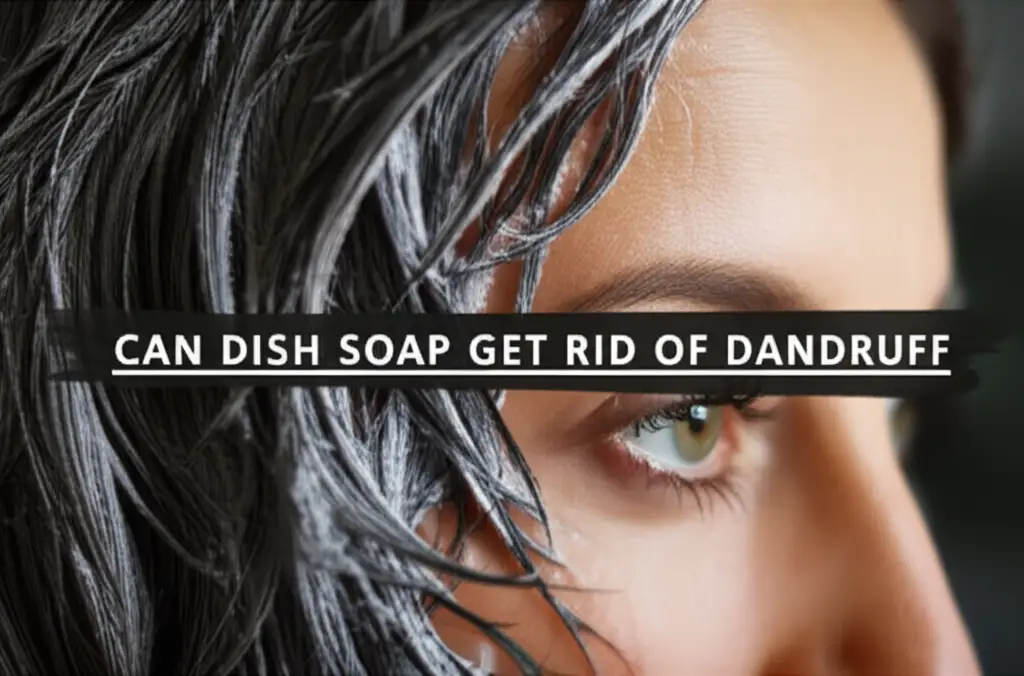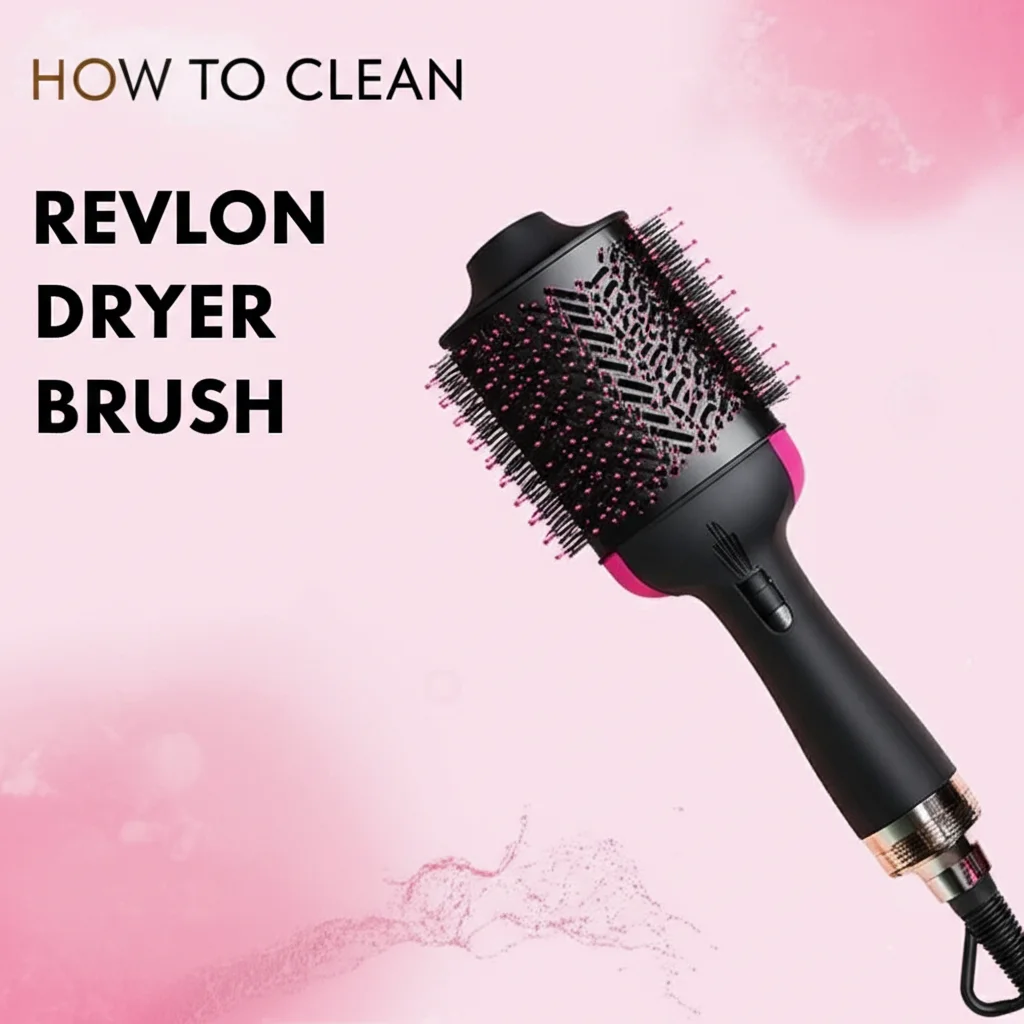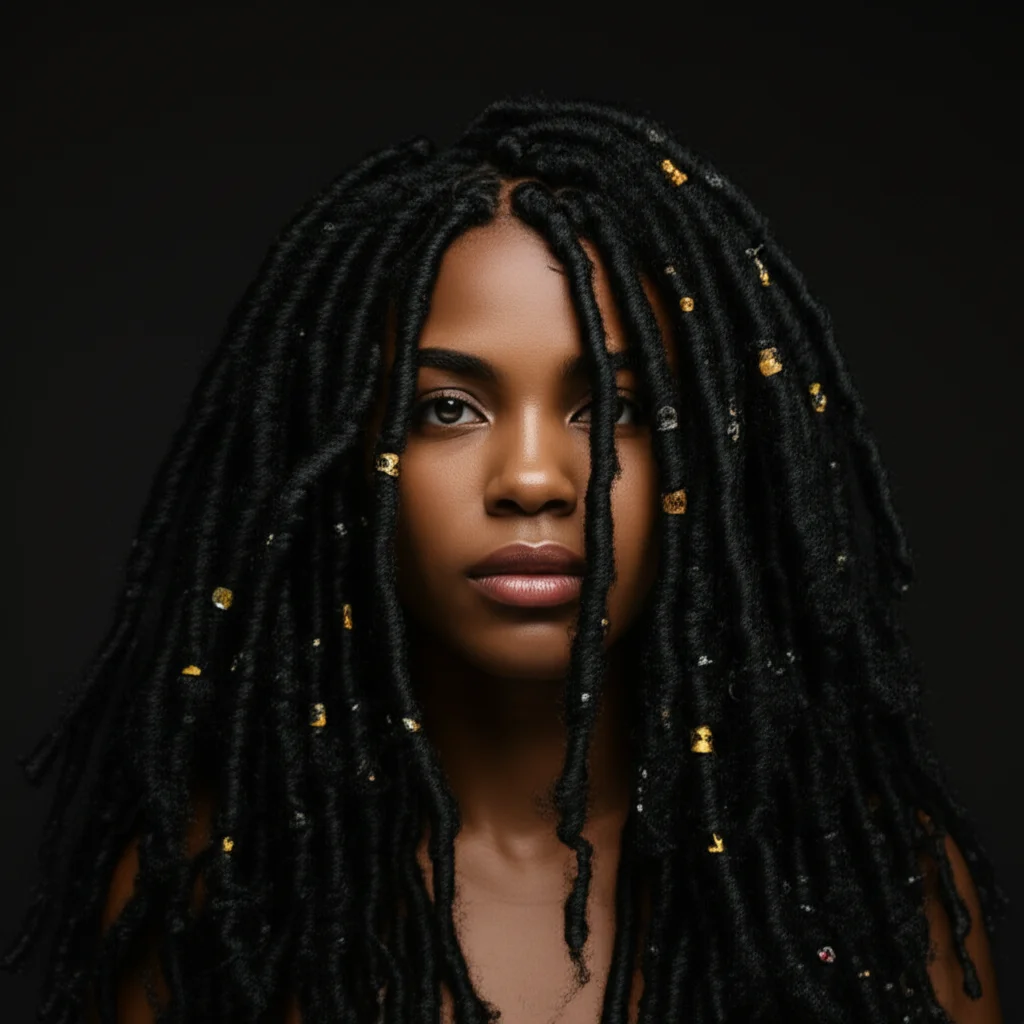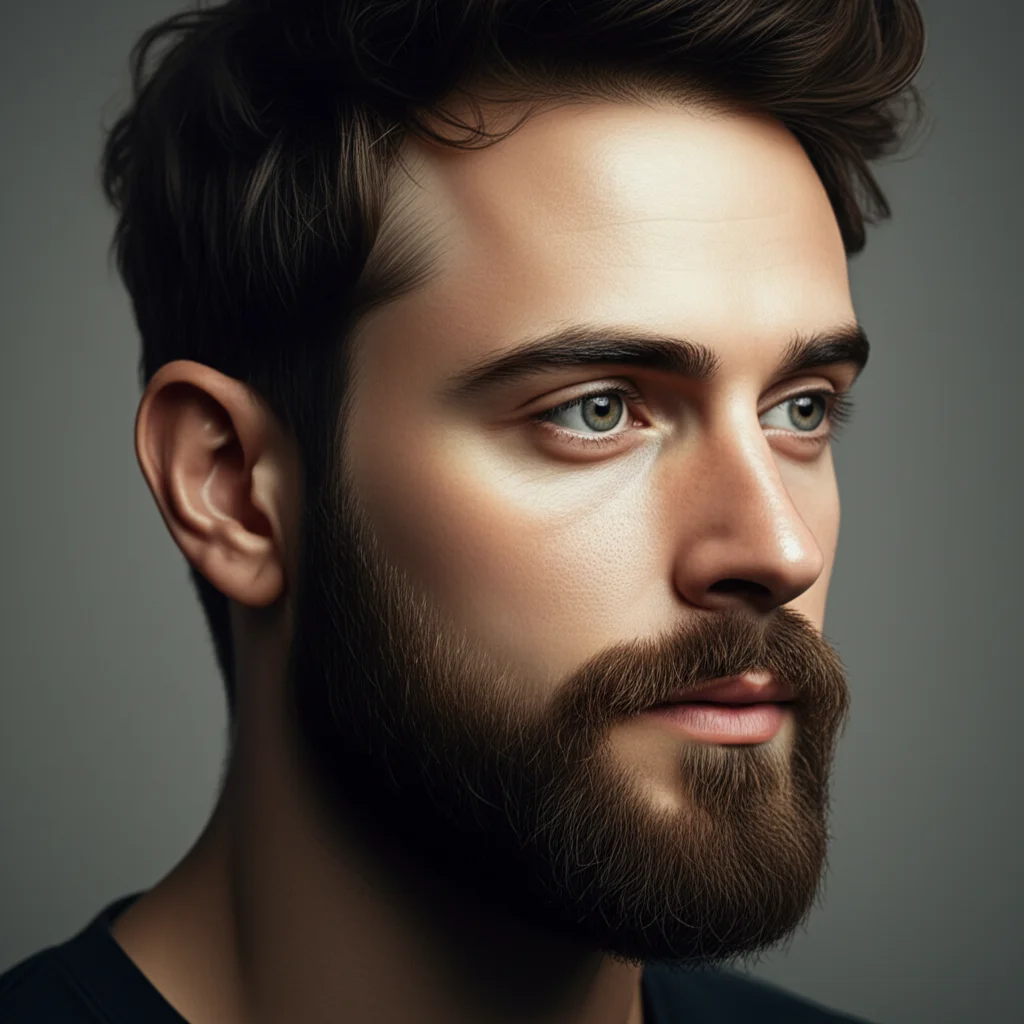· Kianna Connelly · Hair Care · 20 min read
Can Dish Soap Get Rid Of Dandruff

Can Dish Soap Get Rid Of Dandruff: Uncovering the Truth
You stand in the shower, scratching an itchy scalp, and a fleeting thought crosses your mind: “Could dish soap work for this?” It sounds like a bizarre idea, something you might see in an old internet forum. Yet, the question of whether dish soap can get rid of dandruff persists among those seeking quick fixes for scalp woes. We often look for simple solutions using items we already have in our homes.
Dish soap is a powerful degreaser, designed to strip away grease and grime from dishes. Dandruff often involves an overgrowth of yeast and excess oil on the scalp. This might make some people think dish soap could tackle the problem. However, hair and scalp skin are very different from kitchen plates. Using the wrong product can lead to more harm than good. This article explores the realities of using dish soap for dandruff. We discuss what dandruff is, the composition of dish soap, its potential effects on your hair and scalp, and offer real solutions for dandruff control.
Takeaway:
- Dish soap is not a safe or effective solution for dandruff.
- It can severely dry out and damage your hair and scalp.
- Specialized shampoos and professional advice are the best approaches.
Can dish soap get rid of dandruff? No, dish soap does not effectively or safely treat dandruff. While its degreasing properties might temporarily reduce scalp oil, it is too harsh for hair and scalp. It will strip natural oils, cause extreme dryness, irritation, and potentially worsen your scalp condition, leading to damage.
Understanding Dandruff: More Than Just Flakes
Dandruff is a common scalp condition. It causes flakes of skin to appear and often leads to an itchy scalp. Many people mistake dry scalp for dandruff, but they are different conditions. Dandruff results from an overgrowth of a yeast-like fungus called Malassezia. This fungus feeds on the oils found on your scalp.
Our skin cells normally die and get replaced by new ones. With dandruff, this process speeds up. The dead skin cells shed at an accelerated rate, clumping together to form visible flakes. These flakes often look white or yellowish. They can be greasy or dry.
Common causes of dandruff include:
- Oily skin (seborrheic dermatitis): This is a main cause. Excess oil creates a perfect breeding ground for Malassezia.
- Malassezia globosa: This fungus naturally lives on everyone’s scalp. Some people are more sensitive to it than others, leading to an inflammatory response.
- Dry skin: While less common, a truly dry scalp can also flake. These flakes are usually smaller and less oily.
- Not shampooing enough: This allows oils and skin cells to build up, worsening dandruff.
- Sensitivity to hair care products: Some people react to ingredients in shampoos or styling products. This is known as contact dermatitis.
- Certain medical conditions: Conditions like psoriasis, eczema, or even a weakened immune system can contribute to dandruff.
It is important to understand the cause of your dandruff. This helps in choosing the correct treatment. Using a product designed for dishes will not address the root cause of dandruff. It will only create new problems for your scalp.
Dish Soap’s Composition: What’s Inside?
Dish soap is formulated for a very specific purpose: cleaning dishes. Its chemical composition makes it incredibly effective at breaking down grease and food residue. It is not designed for human skin or hair. Understanding its ingredients helps explain why it is unsuitable for your scalp.
The main active ingredients in dish soap are strong surfactants. Surfactants are chemicals that reduce the surface tension of liquids. They allow water to mix with oils and dirt. This lifts grime away from surfaces. Common surfactants in dish soap include sodium lauryl sulfate (SLS) and sodium laureth sulfate (SLES). These are powerful cleansing agents.
In addition to surfactants, dish soaps contain:
- Degreasing agents: These compounds are extra strong to dissolve stubborn grease.
- Foaming agents: They create a rich lather, which consumers often associate with cleanliness. This lather, however, can be hard to rinse completely. You might find yourself needing to learn how to get rid of dish soap bubbles if you use it on unintended surfaces.
- pH adjusters: Dish soaps are typically alkaline, meaning they have a high pH. This helps in cutting through grease.
- Fragrances and dyes: These add aesthetic appeal but can be irritants for sensitive skin.
Hair shampoos, on the other hand, are formulated differently. While they also contain surfactants, these are generally milder. Shampoos include conditioning agents, humectants, and emollients. These ingredients help to moisturize hair and scalp. They balance the pH to be closer to that of healthy skin. The goal of shampoo is to clean without stripping essential moisture. Dish soap does not have these balancing ingredients. Its primary function is to strip everything away. This powerful action is too harsh for delicate scalp skin and hair strands.
The Potential Risks of Using Dish Soap on Hair
Using dish soap on your hair, especially for a condition like dandruff, carries significant risks. It is a harsh chemical cleaner, not a hair care product. The damage it can cause extends from immediate irritation to long-term hair health problems. Do not expect positive outcomes for your scalp.
pH Imbalance and Scalp Health
Healthy scalp skin has a slightly acidic pH, typically around 4.5 to 5.5. This acidic mantle acts as a protective barrier. It keeps moisture in and harmful bacteria or fungi out. Dish soaps are highly alkaline, with a pH often ranging from 8 to 10. Applying an alkaline product to your scalp disrupts its natural pH balance.
This disruption weakens the scalp’s protective barrier. A compromised barrier makes your scalp vulnerable to irritation, dryness, and increased sensitivity. It can also make existing conditions like dandruff worse. An imbalanced pH can lead to itching, redness, and a burning sensation. Your scalp may become more prone to infections.
Stripping Natural Oils
Dish soap is a powerful degreaser. Its main job is to strip away oils and grease. Our hair and scalp produce natural oils called sebum. Sebum is essential for healthy hair and a healthy scalp. It moisturizes the hair strands and protects the scalp from dryness.
When you use dish soap, it aggressively removes this protective sebum layer. This leaves your hair feeling extremely dry, brittle, and rough. Your scalp also becomes very dry. This dryness can trigger the scalp to produce even more oil in an attempt to compensate. This rebound oiliness can actually exacerbate dandruff. It creates an even better environment for the Malassezia fungus to thrive. The cycle of dryness followed by over-oiling creates a frustrating situation.
Color Damage for Treated Hair
If you have color-treated or chemically processed hair, using dish soap is especially damaging. The strong surfactants and high pH in dish soap are very effective at stripping color. It can quickly fade your expensive dye job. This results in dull, uneven color.
Beyond color fading, dish soap can also alter the texture of processed hair. Chemically treated hair often has a more porous structure. This makes it more susceptible to damage from harsh chemicals. Dish soap can leave treated hair feeling like straw. It can increase breakage and make your hair impossible to manage. Consider how aggressive dish soap is on surfaces; it is just as aggressive on hair. If you are ever trying to remove a stubborn stain, like getting dish soap out of jeans or other clothing, you see its power. Imagine that power working on your hair color.
Why Some People Consider Dish Soap for Dandruff
The idea of using dish soap for dandruff might seem illogical to some, but it stems from a few common misconceptions and a desperate search for solutions. People often consider it due to its perceived “degreasing” power and the accessibility of the product. Let’s look at why this idea gains traction.
Firstly, many people associate dandruff with an oily scalp. It is true that excess oil can contribute to Malassezia overgrowth. Dish soap is famous for its ability to cut through grease on plates and pans. This leads people to believe it can do the same for scalp oil. The logic is, “if it removes grease from dishes, it must remove grease from my scalp.” This simple, but flawed, deduction overlooks the vast differences between kitchenware and human biology.
Secondly, dish soap is readily available in almost every home. It is a common household item. When faced with an irritating and visible problem like dandruff, people often look for quick, free, or low-cost remedies they already possess. They might not want to buy a specialized dandruff shampoo. They might not know what to buy. The convenience factor plays a big role in this consideration. It’s similar to when people wonder if they can use dish soap to clean a toilet or other household items. It’s already there, so why not try it?
Thirdly, anecdotal evidence, often found on internet forums or social media, can spread misinformation. Someone might claim dish soap “worked” for them. This might be because it temporarily removed surface oil. However, this temporary relief often comes at the cost of long-term damage. These short-term “fixes” are not sustainable. They often worsen the problem in the long run. The initial “clean” feeling from stripping all oils is deceptive. It feels clean but is actually damaging.
Finally, some confuse strong cleaning with effective treatment. Dish soap does clean powerfully. But effective dandruff treatment requires more than just removing oil. It needs to address the fungal component and maintain scalp health. This requires a balanced approach, not just harsh degreasing.
Effective and Safe Dandruff Treatment Options
Instead of resorting to dish soap, there are many safe and effective ways to manage and treat dandruff. These methods address the root causes of dandruff. They do not harm your hair or scalp. I always recommend starting with over-the-counter options. If those do not work, then seek professional advice.
Over-the-Counter Solutions
The first line of defense against dandruff is usually a specialized dandruff shampoo. These shampoos contain active ingredients designed to fight the fungus Malassezia or reduce skin cell turnover. Look for shampoos containing:
- Pyrithione zinc: This is an antifungal and antibacterial agent. It slows down the growth of yeast.
- Selenium sulfide: Another antifungal agent. It helps reduce cell turnover and inflammation.
- Ketoconazole: A stronger antifungal, often found in prescription-strength shampoos. Some lower concentrations are available over-the-counter.
- Salicylic acid: This ingredient helps to loosen and remove scales from the scalp. It works as an exfoliant.
- Coal tar: This ingredient slows down how fast skin cells die and flake off. It can be strong and might have a smell.
When using these shampoos, follow the instructions carefully. You usually need to leave the shampoo on your scalp for a few minutes. This allows the active ingredients to work. Use them regularly, often two to three times a week, until your dandruff is under control. Once dandruff is controlled, you can reduce frequency to once a week or as needed for maintenance.
Natural Home Remedies
Some natural remedies can complement medicated shampoos or help with mild dandruff. These are gentler options. They usually do not have the harsh effects of dish soap.
- Tea Tree Oil: This essential oil has natural antifungal and antiseptic properties. You can add a few drops to your regular shampoo before washing. Do not apply it directly to your scalp without dilution, as it can cause irritation.
- Apple Cider Vinegar (ACV): ACV is slightly acidic. It can help balance your scalp’s pH and inhibit fungal growth. Dilute ACV with water (1 part ACV to 2-3 parts water). Apply it to your scalp after shampooing, let it sit for a few minutes, then rinse thoroughly.
- Aloe Vera: Aloe vera has anti-inflammatory properties. It can soothe an itchy and irritated scalp. Apply fresh aloe vera gel directly to your scalp before shampooing. Let it sit for 20-30 minutes.
- Baking Soda: Baking soda is an exfoliant. It can help remove dead skin cells. However, use it cautiously. It is alkaline, which can disrupt pH. Mix a tablespoon with water to form a paste, gently massage onto your scalp, and rinse. Use sparingly.
- Coconut Oil: Coconut oil is moisturizing. It also has some antifungal properties. Warm a small amount and massage it into your scalp. Leave it on for an hour or overnight before washing your hair. This helps with dryness that can sometimes be confused with dandruff or accompany it.
Always patch test any new natural remedy. Ensure it does not cause irritation before full application.
Lifestyle Adjustments
Beyond specific products, lifestyle factors play a role in managing dandruff. Simple changes can make a big difference.
- Wash your hair regularly: Not washing enough can lead to oil and skin cell buildup. This makes dandruff worse. Regular washing helps keep the scalp clean.
- Manage stress: Stress can exacerbate many skin conditions, including dandruff. Find healthy ways to manage stress. This can include exercise, meditation, or hobbies.
- Eat a balanced diet: A diet rich in zinc, B vitamins, and healthy fats can support overall skin and scalp health.
- Limit styling products: Gels, mousses, and hairsprays can build up on the scalp. This can worsen dandruff. Try to reduce their use, especially those with alcohol.
- Exposure to sunlight: Limited exposure to natural sunlight can sometimes help. However, always protect your skin from harmful UV rays.
- Avoid scratching: Scratching your scalp can irritate it further. It can also lead to open sores and infection. Try to resist the urge.
- Clean brushes and combs: Regularly clean your hair brushes and combs. This removes product buildup and dead skin cells. These tools can harbor fungus.
By combining appropriate medicated shampoos with gentle home remedies and healthy lifestyle choices, you can effectively manage and prevent dandruff. This approach protects your hair and scalp health.
When to See a Doctor for Dandruff
While many cases of dandruff respond well to over-the-counter treatments and home remedies, there are times when professional medical advice is necessary. Knowing when to consult a doctor ensures you receive the correct diagnosis and a more effective treatment plan. Do not delay seeing a professional if symptoms worsen or persist.
You should consider seeing a dermatologist or your general practitioner if:
- Over-the-counter shampoos are ineffective: If you have consistently used a medicated dandruff shampoo for several weeks (following directions) and see no improvement, it is time to seek professional help. Your dandruff might be more severe or caused by a different underlying condition.
- Symptoms worsen: If your itching, redness, or flaking becomes more severe, spreads to other areas, or causes significant discomfort, consult a doctor.
- Your scalp becomes red, swollen, or develops sores: These symptoms could indicate an infection or a more serious skin condition. Dandruff itself usually does not cause open sores.
- You suspect another skin condition: Sometimes, what appears to be dandruff is actually another scalp condition. Examples include psoriasis, eczema, or tinea capitis (ringworm of the scalp). A doctor can accurately diagnose the issue.
- You experience hair loss: While dandruff typically does not cause permanent hair loss, severe inflammation or aggressive scratching can lead to temporary thinning or breakage. If you notice significant hair loss alongside your dandruff, seek medical advice.
- The condition impacts your quality of life: If dandruff causes you embarrassment, self-consciousness, or affects your daily activities, a doctor can help you find a long-term solution.
A dermatologist can provide stronger prescription-strength shampoos, topical corticosteroids, or oral medications if needed. They can also offer tailored advice based on your specific scalp condition. Self-treating with harsh products like dish soap can complicate diagnosis and treatment. It is always better to get a professional opinion for persistent health issues.
Comparing Dish Soap to Specialized Dandruff Shampoos
The fundamental difference between dish soap and specialized dandruff shampoos lies in their purpose, ingredients, and the effect they have on your hair and scalp. Understanding these distinctions reinforces why one is harmful and the other is beneficial for managing dandruff. I want to highlight these differences clearly.
Dish Soap:
- Primary Purpose: To cut through and emulsify grease and food residues on inanimate surfaces. It is a powerful degreaser for non-living objects.
- Key Ingredients: Contains strong, high-pH surfactants like sodium lauryl sulfate (SLS) in high concentrations. These are designed for maximum stripping power. It lacks conditioning agents.
- pH Level: Highly alkaline (pH 8-10). This pH is damaging to the naturally acidic scalp and hair.
- Effect on Hair and Scalp:
- Stripping: Aggressively strips all natural oils (sebum) from hair and scalp, leading to extreme dryness. This can cause the scalp to overproduce oil in response, worsening dandruff.
- Damage: Causes hair cuticles to lift, leading to frizz, dullness, breakage, and a rough texture. It can strip hair color.
- Irritation: The high pH and harsh chemicals can irritate the scalp, causing redness, itching, and increased sensitivity. It can exacerbate conditions like contact dermatitis.
- Residue: Despite its cleaning power, the high foaming action and lack of conditioning agents can leave behind residues on hair, making it feel “squeaky” but not clean in a healthy way. You may even face issues similar to when too much is used, and you wonder how to get dish soap out of dishwasher.
Specialized Dandruff Shampoos:
- Primary Purpose: To treat the underlying causes of dandruff, which include fungal overgrowth and accelerated skin cell turnover, while maintaining scalp health.
- Key Ingredients: Contains active medicinal ingredients such as pyrithione zinc, selenium sulfide, ketoconazole, salicylic acid, or coal tar. These ingredients are chosen for their antifungal, antiseptic, or exfoliating properties specific to scalp conditions. They also contain milder surfactants and conditioning agents.
- pH Level: Formulated to be closer to the natural pH of the scalp (pH 4.5-5.5) or slightly higher but still balanced, minimizing disruption to the skin’s protective barrier.
- Effect on Hair and Scalp:
- Targeted Treatment: Actively works to reduce Malassezia fungus and normalize skin cell turnover.
- Gentle Cleansing: Cleanses the scalp without excessively stripping essential natural oils.
- Conditioning: Often includes moisturizing and conditioning agents to keep hair soft and scalp hydrated.
- Soothing: Many formulations include ingredients to soothe irritation and reduce itchiness.
- Hair Protection: Designed to be safe for frequent use and to protect hair health and color.
In essence, dish soap is a powerful industrial cleaner not suited for delicate biological surfaces. Dandruff shampoos are therapeutic products specifically formulated for the human scalp. Using dish soap on your hair is akin to using car wash soap on your skin – it’s the wrong product for the job. It leads to problems and does not solve the underlying issue. Just as you wouldn’t use car wash with dish soap in an automatic car wash system, you shouldn’t use dish soap on your hair.
Maintaining Scalp Health Beyond Dandruff Treatment
Treating dandruff is not just about eliminating flakes. It also involves establishing a consistent routine for long-term scalp health. A healthy scalp is the foundation for healthy hair. I believe prevention is always better than cure. Once your dandruff is under control, focus on maintaining that balance.
Here are some practices for ongoing scalp care:
- Regular, Gentle Cleansing: Continue to wash your hair regularly, even after dandruff improves. This prevents oil and product buildup. Use a mild, pH-balanced shampoo for regular washes. You can alternate with your medicated dandruff shampoo once a week for maintenance.
- Condition Appropriately: Always follow shampooing with a conditioner, especially on the mid-lengths and ends of your hair. If your scalp tends to be oily, apply conditioner mostly to the hair strands and rinse thoroughly. Avoid applying heavy conditioners directly to the scalp.
- Avoid Over-Washing: While regular washing is good, over-washing can strip essential oils. Find a frequency that suits your scalp type. For some, this might be every other day; for others, two to three times a week.
- Rinse Thoroughly: Ensure you rinse all shampoo and conditioner completely from your hair and scalp. Leftover product can cause irritation and buildup. It is similar to ensuring you get dish soap out of washing machine after an accidental overload.
- Mind Your Hair Tools: Regularly clean your hairbrushes, combs, and styling tools. Product residue and dead skin cells can accumulate. This can transfer back to your clean scalp.
- Protect from Heat: Excessive heat from styling tools can dry out your scalp and hair. Use heat protectants. Limit the use of high heat settings. Allow your hair to air dry when possible.
- Hydrate Internally: Drink plenty of water. Hydration from the inside supports overall skin health, including your scalp.
- Choose Hair Products Wisely: Opt for hair products that are non-comedogenic (do not clog pores) and free from harsh chemicals. If you have sensitive skin, choose fragrance-free options.
- Handle Wet Hair Gently: Wet hair is fragile. Avoid aggressive towel drying or brushing. Use a wide-tooth comb to detangle wet hair gently.
- Scalp Massages: Gentle scalp massages can improve blood circulation. This can promote a healthy scalp environment. You can do this while shampooing.
By adopting these healthy hair and scalp habits, you can create an environment that discourages dandruff recurrence. Your goal is to keep your scalp clean, balanced, and free from irritation. This supports vibrant, healthy hair growth.
FAQ Section
Is dish soap safe for hair? No, dish soap is not safe for hair. It contains strong degreasing agents and high pH levels. These chemicals are designed for inanimate objects, not delicate hair and scalp. Using dish soap can lead to severe dryness, damage, and irritation. It strips away natural oils, leaving your hair brittle and dull.
What are the side effects of using dish soap on scalp? Side effects include extreme scalp dryness, itchiness, and irritation. It can strip natural protective oils, leading to a compromised scalp barrier. This makes your scalp more vulnerable to infections or worsening conditions like dandruff. Hair can become dry, brittle, frizzy, and prone to breakage.
Can dish soap help with oily scalp? While dish soap will strip oils from your scalp, this is a temporary and damaging solution. It removes natural oils too aggressively. Your scalp may then overcompensate by producing even more oil. This can worsen oily scalp issues or even exacerbate dandruff. Use a shampoo designed for oily hair instead.
What are quick remedies for dandruff? For quick relief from dandruff, use an over-the-counter medicated shampoo. Look for ingredients like pyrithione zinc or selenium sulfide. Leave the shampoo on for the recommended time. You can also try diluted apple cider vinegar rinse or a few drops of tea tree oil in your regular shampoo. These offer quick but gentle relief.
How often can I wash my hair with dandruff shampoo? Initially, you can use a dandruff shampoo 2-3 times a week until your symptoms improve. Once dandruff is under control, reduce the frequency to once a week or as needed. You can alternate with your regular, mild shampoo. Always follow the specific instructions on the product label.
Will dish soap strip hair color? Yes, dish soap will very likely strip hair color. Its strong degreasing agents and high pH open the hair cuticle and wash out dye molecules. This can cause your hair color to fade quickly, become uneven, or turn dull. It is highly damaging for color-treated hair.
Conclusion
The tempting thought of using dish soap to tackle dandruff is understandable. We all seek simple solutions for common problems. However, the truth is clear: dish soap is not an effective or safe solution for dandruff. Its harsh chemical composition, designed for stripping grease from dishes, is detrimental to the delicate balance of your hair and scalp. Using it can lead to extreme dryness, irritation, and damage, potentially worsening your scalp condition in the long run.
Instead of turning to a kitchen cleaner, embrace proven methods for managing dandruff. Invest in a specialized dandruff shampoo containing active ingredients like pyrithione zinc or selenium sulfide. Complement this with gentle home remedies and healthy lifestyle practices. If your dandruff persists or worsens, consult a dermatologist. They can offer a proper diagnosis and tailored treatment plan. Protect your hair and scalp health by making informed choices. Your scalp deserves products designed for its care, not for cleaning pots and pans. Make the right choice for your hair’s well-being.
- dandruff treatment
- scalp health
- dish soap uses
- hair care tips
- home remedies for dandruff





